Robots might replace us, but not today. This prospect seems alarming. It has companies on their toes. They use the latest technology to stay ahead.
Among these advances, Large Language Models (LLMs) stand out, not as job-stealers but as powerful tools.
These AI platforms are transforming businesses in unexpected ways. From automating customer service to generating market reports, LLMs are more than just chatbots.
Today, we'll explore 12 tasks businesses can do with the best LLM platforms. We'll show their versatility and impact on modern business.
1. Content Creation
LLM development services have revolutionized content creation by automating the creation of various text formats, which are crucial for digital marketing and online presence.
Tool: Automated content creation tools like .
Real-world example: GPT-3-powered content generation tools used by online marketers.
Business problem solved: It makes diverse content types in a consistent brand style. This boosts engagement on many platforms.
These platforms can easily craft everything. They make captivating social media updates, marketing copy, and product descriptions. They make sure that content both engages and persuades. It also stays true to the brand's voice. This greatly boosts digital marketing.
2. Customer Service
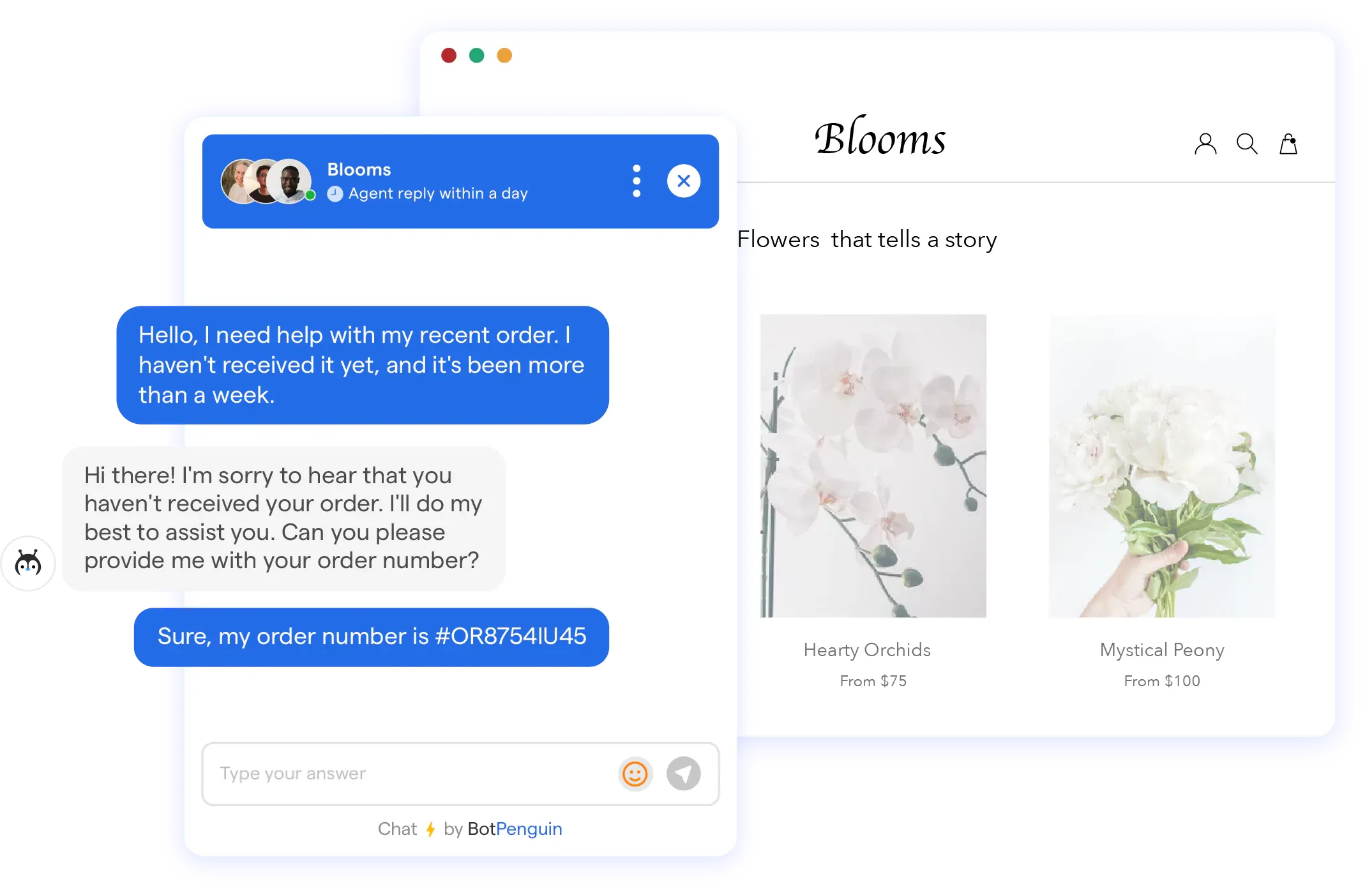
Customer service can make or break a business. LLM-powered chatbots can improve customer service. These chatbots can interact with customers 24/7. The chatbots handle inquiries, troubleshoot issues, and conduct transactions.
Tool: AI-powered customer service chatbots.
Real-world example: BotPenguin’s AI Chatbot provides AI-powered customer service. It offers smooth integration into existing company workflows.
Business problem solved: It offers scalable customer support, reduces operational costs, and improves customer satisfaction rates.
These chatbots are built to provide instant and reliable answers to customer queries. They provide service that meets the expectations of today’s consumers. They also improve their responses through day-to-day interactions. This ensures that customer service keeps getting better to meet changing needs.
3. Data Analysis and Reporting
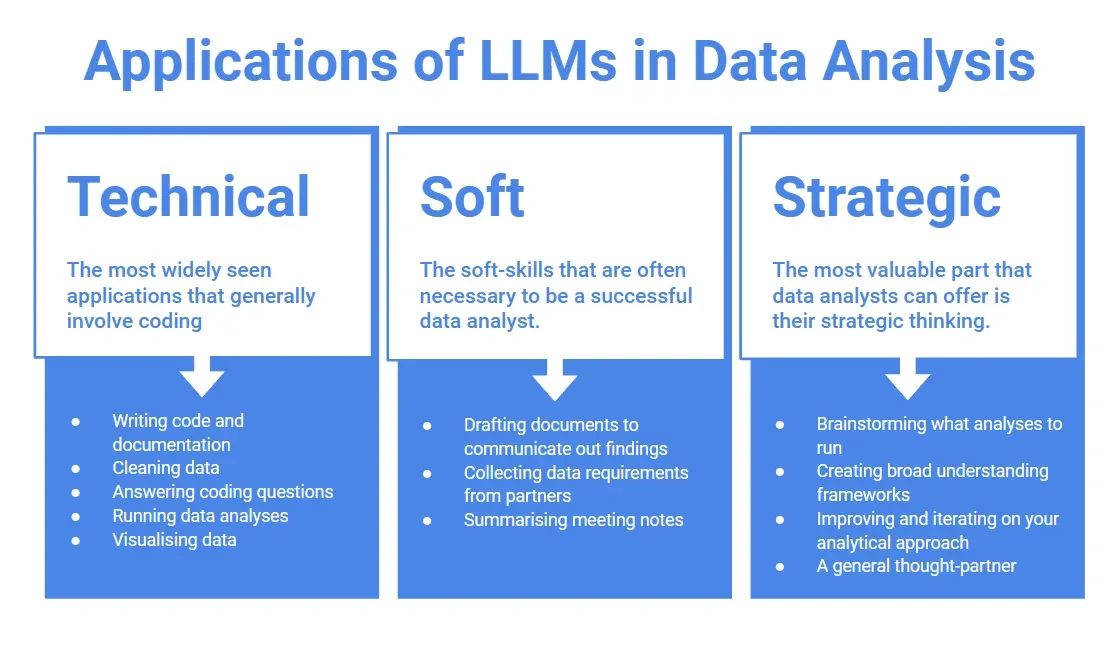
The ability to analyze big datasets and find insights is crucial. It helps in making informed business decisions. The best LLM platforms are great at processing lots of data. They use it to find trends, make reports, and even predict market behaviors.
Tool: Advanced Data Analysis and Reporting Systems
Real-world example: Tableau, which integrates AI to transform raw data into actionable insights.
Business problem solved: It frees human analysts to tackle more complex problems, enhancing productivity and strategic insight.
LLMs automate the analysis of large, messy data sets. They let businesses quickly understand market trends, customer preferences, and other key metrics. This is all without the need for much manual effort. This facilitates quick decision-making and boosts efficiency.
4. Machine translation
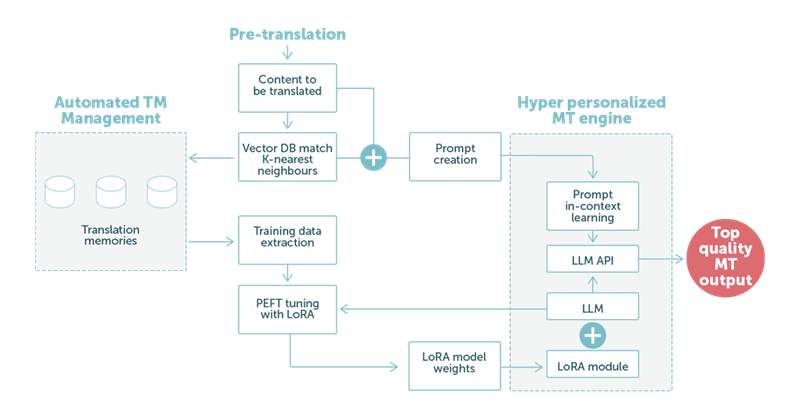
In the current economy, the ability to communicate in various languages is more valuable than ever. LLM development services provide better machine translation. They beat traditional tools in both accuracy and fluency.
Tool: AI-enhanced Machine Translation Services.
Real-world example: DeepL is known for its better translations. They're better than those of older machine translation technologies.
Business problem solved: It breaks down linguistic barriers, letting businesses expand into new markets and connect with a global audience effectively.
5. Personalization
In digital marketing and e-commerce, personalization is the key. It captures customer interest and loyalty. The best LLM platforms excel at tailoring messages and recommendations. They are custom-made for individual preferences, behaviors, and past data.
Tool: Personalized Recommendation Systems
Real-world example: Amazon's recommendation engine.
Business problem solved: Increases sales and customer satisfaction by delivering personalized shopping experiences.
These systems provide personalized marketing messages using user data. They also recommend products the user will likely like and create a unique customer journey for each person. This improves the user experience. It also boosts marketing and e-commerce.
Suggested Reading:
6. Market Research and Trend Analysis
Businesses need to understand market analytics and customer sentiments to stay competitive. The best LLM platforms can digest lots of unstructured data. This data is sourced from social media, news, etc. They use it to spot trends and measure public opinion.
Tool: Trend Analysis and Market Research Tools
Real-world example: Brandwatch, a social media analytics tool
Business problem solved: Provides insights into consumer behavior and market trends, aiding in strategic decision-making.
LLMs automate the analysis of social media conversations and online content. They give businesses real-time insights into emerging trends, brand perception, and customer needs. This information is crucial for making products. It's also key for tailoring marketing. And for addressing market shifts before they happen.
7. Legal and Contract Review
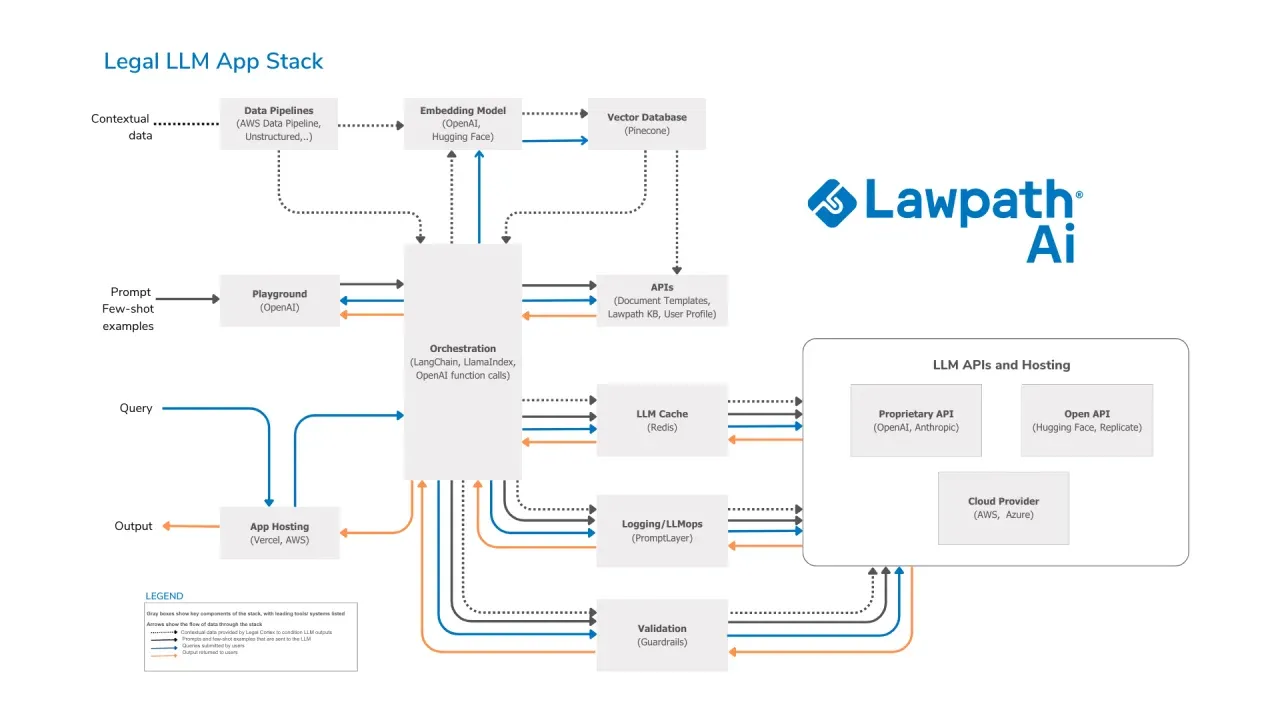
Navigating legal documents and ensuring compliance can be daunting and resource-intensive. The best LLM platforms can streamline this by automatically reviewing contracts and legal documents. They find issues and ensure favorable terms.
Tool: Automated Legal Review systems.
Real-world example: Kira Systems, which automates the extraction and analysis of key information from legal documents.
Business problem solved: Reduces legal expenses and mitigates risks associated with contract management.
The platforms can quickly scan contracts. They highlight potential legal issues, suggest changes, and ensure compliance with laws. This not only speeds up the legal review process but also significantly reduces the risk of costly legal disputes.
8. Code Generation & Review
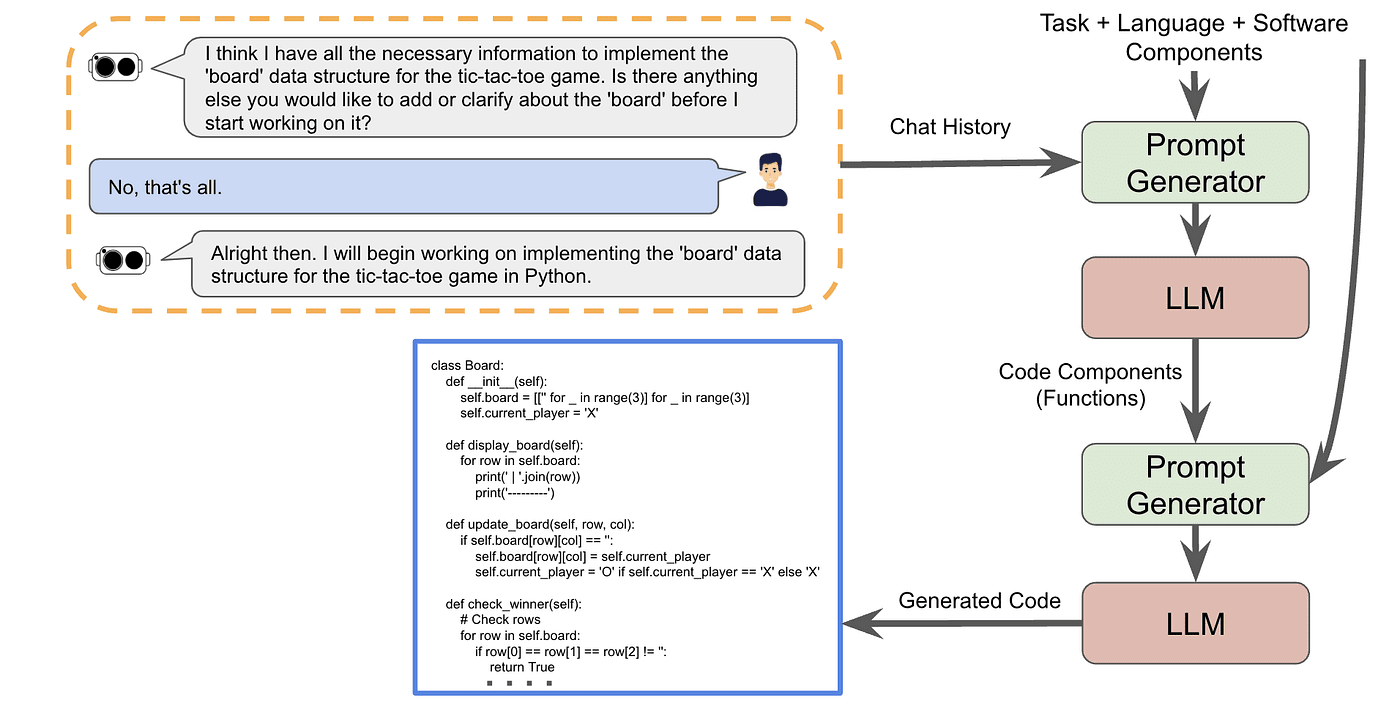
LLMs are also making strides in the field of software development by assisting developers in writing and reviewing code. The tools can make code snippets and find errors in existing code. They also suggest improvements.
Tool: AI-powered Code Assistants
Real-world example: GitHub Copilot, which suggests code snippets and entire functions based on the user’s current coding context.
Business problem solved: Enhances developer productivity and code quality, reducing development time and debugging efforts.
These LLMs provide real-time help while coding. They help programmers write better code by making it faster and less error-prone. They also help review large codebases. This makes the process faster and more accurate than traditional manual reviews.
9. Email and Letter Writing
Automating routine communications, such as emails and letters, frees up time. Employees can use it to focus on complex tasks. LLM platforms are adept at generating these types of content efficiently and effectively.
Tool: Automated Email and Letter Generators
Real-world example: Boomerang Respondable, which helps us write effective emails.
Business problem solved: Increases productivity by automating routine correspondence and ensuring communications are clear and professional.
These systems give relevant and instant information using user inputs. They've cut the time spent on these tasks while keeping a high level of professionalism and appropriateness.
10. Idea Generation and brainstorming
Creativity is a crucial competitive edge in today’s market. LLM platforms help brainstorming. They facilitate idea generation for products, services, and marketing.
Tool: Idea Generation Assistants
Real-world example: Jasper, an AI that provides content ideas and strategies.
Business problem solved: Improves creative processes and speeds up idea generation. It helps businesses stay innovative and responsive to market needs.
These tools stimulate creative thinking by suggesting concepts and approaches that may not be obvious to human teams. This expands businesses' creative potential and provides more options to explore.
11. Summarization and text extraction
There is an overwhelming amount of information available today. The best LLM platforms can quickly summarize long documents or extract key information, making data processing easier.
Tool: Text Summarization and Extraction tools.
Real-world example: SummarizeBot, which extracts and summarizes key information from a variety of sources.
Business problem solved: Saves time and improves information accessibility by condensing long texts into concise summaries and extracting crucial data points.
They're great for professionals who need to consume a lot of information fast. This includes researchers, lawyers, and executives. The platforms ensure they get the needed information without sifting through a lot of papers.
12. Security Threat Detection
Cyber threats are getting more advanced. Businesses need advanced solutions to protect their data. LLM platforms analyze network traffic. They detect anomalies that could show security threats.
Tool: Network Security Monitoring Tools
Real-world example: Darktrace, which uses AI to detect and respond to cyber threats in real time.
Business problem solved: Enhances security posture by proactively identifying and mitigating potential threats before they can cause harm.
The systems monitor network activity constantly. They learn normal behavior patterns, which lets them quickly spot unusual activities that may indicate a security breach. This visionary approach to cybersecurity protects the business's critical assets and helps it maintain trust in its customers.
Conclusion
In these diverse uses, it's clear that the best LLM platforms, made by leading LLM developers, are more than just tools. They are key partners in modern business strategies.
Choosing the best LLM development company also offers big benefits. They do this by automating boring tasks, such as email writing. They also spark creativity in product development. LLM development services are good at quickly processing a lot of information. They also secure networks against cyber threats.
Businesses keep investing in LLM development services. The integration of these advanced technologies becomes more and more crucial. It's shaping the future of business operations and innovation.
Companies that use LLM services are poised to lead their industries. These are the cutting-edge capabilities of these powerful platforms.
Suggested Reading:
Custom LLM Development: Build LLM for Your Business Use Case
Frequently Asked Questions (FAQs)
What are LLM platforms?
Large language model platforms, or LLM platforms, leverage cutting-edge AI to generate and analyze text in a way that is human-like, streamlining processes like data analysis, customer support, and content development.
How do the best LLM platforms improve business processes?
The best LLM platforms automate and enhance various tasks, such as writing, customer support, and data analysis, to increase efficiency and reduce operational costs.
What industries benefit most from LLM platforms?
Industries like marketing, customer service, legal, and IT benefit greatly from LLM platforms due to their ability to automate complex tasks and analyze large datasets.
Can LLM platforms be customized for specific business needs?
Yes, LLM Platforms can customized for the specific needs of businesses. Whether it’s enhancing customer interaction, automating content generation, or performing specialized data analysis.
Are LLM platforms secure to use for sensitive data?
The best LLM platforms are designed with security measures in place; however, the level of security depends on the provider. Businesses should ensure that platforms comply with industry-standard security protocols.
What is the cost of implementing an LLM platform?
The price range is based on the complexity and extent of the solution. It can range from affordable subscriptions for small businesses to more significant investments for enterprise-level customizations.
How do the best LLM development companies handle multiple languages?
Many LLM platforms offer multilingual support. They use advanced machine-learning models to understand and generate text accurately in various languages.
What is the difference between LLM platforms and regular chatbots?
LLM platforms are more advanced and use deep learning to understand the context and generate responses, unlike basic chatbots that operate on pre-set rules.



